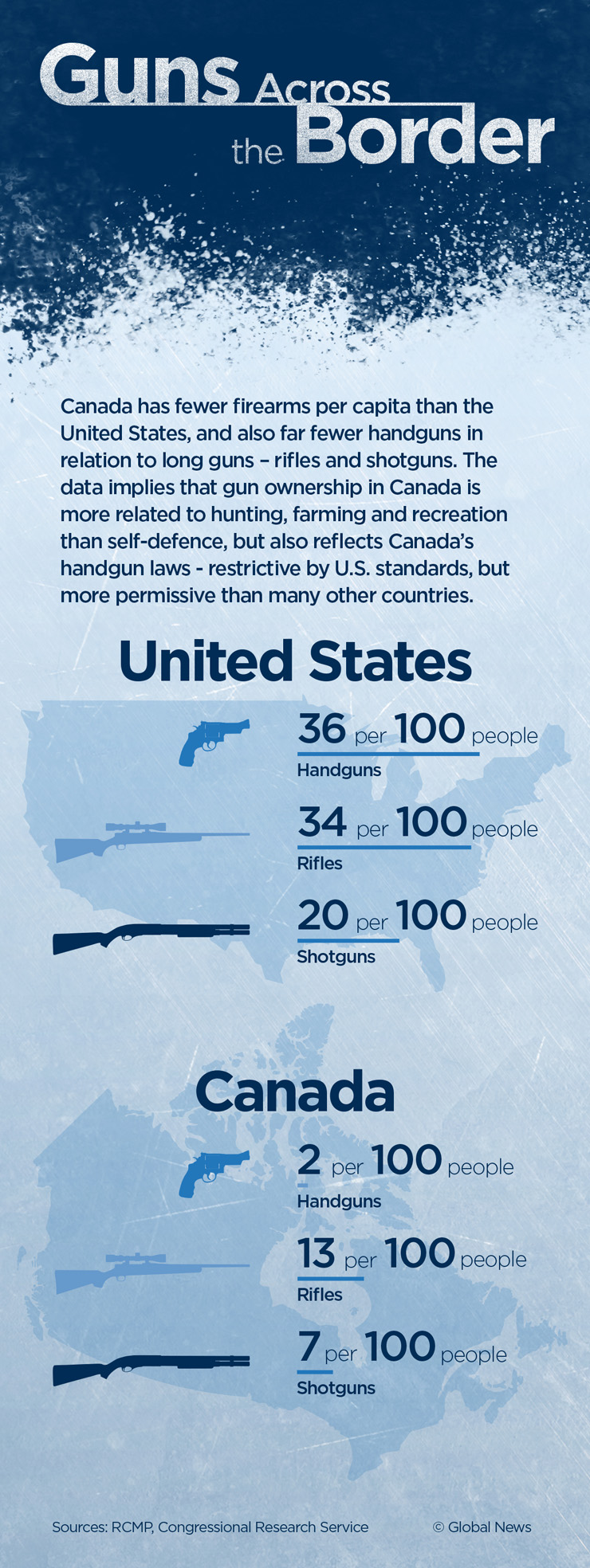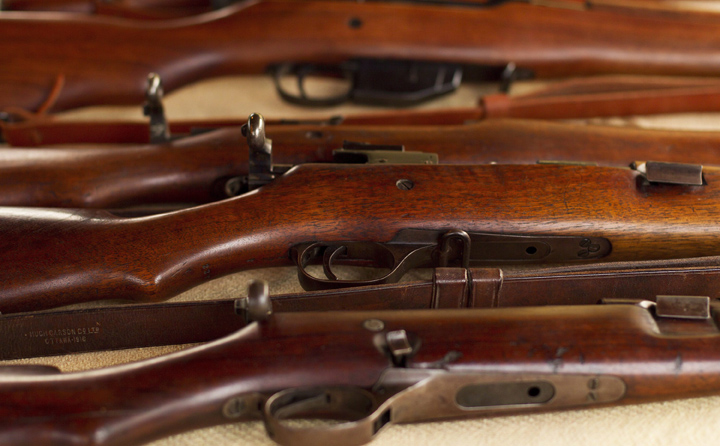Quebec will move to create a provincial long gun registry from scratch after the Supreme Court ruled Friday that it had no right to federal registry data. The province had hoped to use the federal data as a starting point for its own registry.

“Quebec will have to create its own registry without the data for which its people have already paid,” Public Security Minister Lise Thériault said Friday.
While the long gun registry was unpopular in the West and rural English Canada, it was widely accepted in Quebec.
Although Quebec has the power to set up its own long gun registry, however, it now has very few tools to do so. Starting the original gun registry, which was backed by the full force of the criminal law, was an enormous project, says Ottawa lawyer Solomon Friedman.
“It took a decade to get even partial buy-in from gun owners to have them register their guns from scratch, starting in 1998,” he says. “Amnesty after amnesty prolonged that process. By most estimates, they never registered all non-restricted firearms.”
Gun control activist Heidi Rathjen sees the project as practical – provinces have registered motor vehicles for years, after all.
“Cars are a provincial jurisdiction, and I think that system works very well. There is no reason why registering long guns wouldn’t work. The technology is there. It’s easy, it’s effective, we can do it. The only question is political will.”
What could Quebec’s registry law look like?
- Trudeau says ‘good luck’ to Saskatchewan premier in carbon price spat
- Canadians more likely to eat food past best-before date. What are the risks?
- Hundreds mourn 16-year-old Halifax homicide victim: ‘The youth are feeling it’
- Vacation death: Cuba apologizes after Canadian family receives wrong remains
A draft bill that the former PQ government introduced in 2013 for a provincial registry – which never became law – relied on fines, and extensive search powers, for compliance.
“The fines are not insignificant,” Friedman says. “Although they start off at $500 to $1,000 for some offences, they double for every subsequent offence. It gets really expensive really fast.”
Quebec gun owners who flouted the proposed law could also lose their hunting licences.
Without the federal data to start from, and the sobering penalties of the criminal justice system to force compliance, it’s not clear how Quebec officials would do so effectively.
The Quebec long gun registry data contains records of about 1.6 million guns, data obtained by Global News under access-to-information laws shows. Most are rifles, but about 40 per cent are shotguns. The data will be deleted ‘in the very near future,’ said Jeremy Laurin, a spokesperson in Public Safety Minister Steven Blaney’s office.
With those statistics in the public domain, it will always be obvious how far a provincial registry could fall short of the original federal one. A provincial registry risks being judged according to whether or not it has 1.6 million guns in it.
On the other hand, if Quebec officials had access to a complete list of gun licence holders in the province, the task would be simplified to some extent. About 495,000 Quebeckers have some kind of valid gun licence, though not all own long guns, or necessarily any kind of firearm.
Quebec had argued that an unwritten principle of ‘co-operative federalism’ required the federal government to hand over the data. The majority opinion at the Supreme Court, while acknowledging that the principle exists, ruled that it didn’t apply in this case because gun control is an area of federal jurisdiction.
“As has been said many times, the courts are not to question the wisdom of legislation but only to rule on its legality,” justices Thomas Cromwell and Andromache Karakatsanis wrote for the majority.
Cromwell and Karakatsanis acknowledged that denying Quebec the data would make it harder for the province to set up its registry.
The destruction of the data “has the practical effect of making it more difficult financially for Quebec to create its own gun control regime,” they wrote.
“The purpose being pursued … was indeed to prevent the provinces from using the data. The trial judge was therefore right to find that Parliament’s intention in destroying the data was to hinder the provinces.”
Rathjen sees the exercise as wasteful.
“We have to pay now. We have to pay by being deprived of the data that helps police protect us, and also we have to pay to reconstruct something that is already there, that we already paid for, that we’re using every day.”
The federal Conservatives’ refusal to hand over the data – obstructiveness or principled consistency, depending on your point of view – will be unpopular in Quebec, University of Toronto law professor Schneiderman told Global News on Thursday.
“There’s a forthcoming election. (The Conservatives) are fighting for their life in Quebec, around Quebec City, and they’re fighting hard to gain some seats there, and the release of this judgment is an opportunity, maybe, to remind Quebec voters about why they don’t like the Harper government. It might not work in their favour.”
On Friday, the Prime Minister’s Office announced federal funding for 42 infrastructure projects in Quebec, including federally-owned small craft harbours and regional airports.
–
Whatever its flaws and controversies, the long gun registry was a rich source of data about gun ownership in Canada. Global’s redacted copy of the registry, obtained before any data was deleted, is a rich source of information about Canadians and their firearms.
Here are two graphics that show what we learned from the registry:
Gun thieves are picky, and they’re much more interested in some kinds of guns than others. Thirteen years of gun theft data shows a preference for handguns over shotguns and rifles, and for semi-automatic actions in rifles and handguns.

JANET CORDAHI
One difference between Canada and the United States is the contrast in attitudes to gun ownership and firearms themselves. One thing that stands out in the graph below is that there are fewer firearms in Canada compared to the United States, proportionate to population, but also far fewer privately owned handguns in proportion to long guns.
If Canada had American rates of private handgun ownership, we would have over 12 million handguns, instead of the 700,000 that we actually have.

JANET CORDAHI




Comments